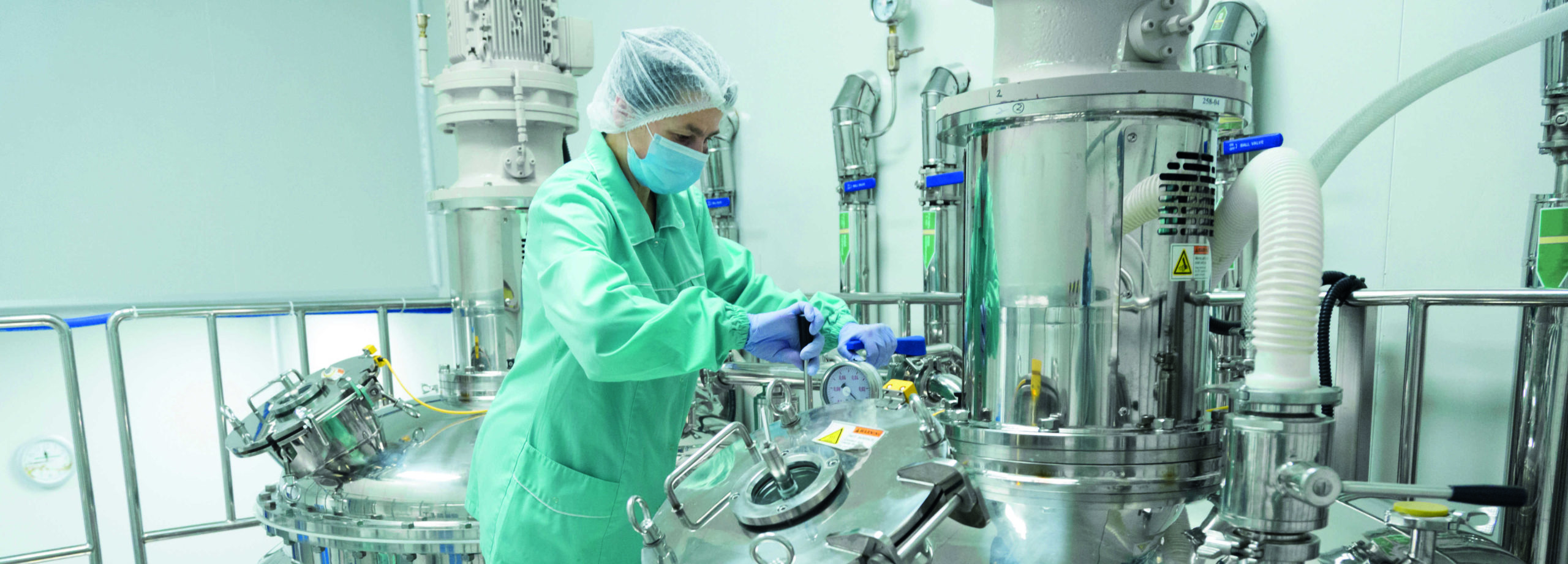Processes and Production Major
This engineering major trains engineers to implement the most economical and environmentally-friendly manufacturing processes. Their role is to manufacture on a large scale what has been formulated in the laboratory, in small quantities. They work mainly in production units.

Semesters 8 and 9
During these two semesters, the student-engineers will learn to :
- Decipher, model and improve industrial and biotechnological processes
- Design, optimize and organize all technical solutions and production methods for products, according to productivity and quality requirements
- Analyze and optimize organization, tooling, logistics and industrial performance
- Deploying sustainable development by identifying clean and resource-efficient processes.
Program
Student-engineers take 3 courses in their major in semesters 8 and 9 in addition to the language courses.
Semester 8
- Unitary transfer operation
- Mechanical unit operation
- Industrialization of a process
- Accounting
- English
- Modern language 2* (French)
Spanish, German, Italian, Portuguese, Japanese, Chinese, Arabic, French, TOEFL/IELTS
Team project course
Semester 9
- Process and plant monitoring and control
- Process Development and Engineering** (PDE)
- Industrial and logistics management
- English
- Modern language 2* (French)
Choice of minors
To enhance their experience and skills, engineering students may freely choose 4 to 10 elective courses from the programs of other majors or from the free program of the following minors:
Semester 8
- Initiation to cosmetics
- Food science** (in French only)
- Health Nutrition
- Sales techniques
- Applied bio-production
- CAD/CAM
- Communication and animation
Semester 9
- Entrepreneurship and innovation
- Sector marketing
- Digital marketing
- Medical devices
- Introduction to Industrial Galenics
- Food safety** (1)
- Carbon footprint
- Eco-toxicology
- Wastewater and drinking water treatment
- Bio-remediation of soils and methanization of waste
- Labour and corporate law
- Advanced modelling
DIP
The Process Development and Engineering (PD&E) course puts students in the position of creating a manufacturing process for a product, based on experimental results described in the literature. This study of the change of scale (from laboratory to industrial size) leads them to choose the appropriate industrial equipment, leading to the best performance, for the best cost and the least impact.
Internship at the end of my school program
During their master's degree in biology, from the 4th to the 5th year, engineering students are challenged by high value-added internships, contributing to change within the company. Depending on the company's needs, the end-of-studies engineering internship can be integrated into a professionalization contract of up to 9 months.
Students travel the world through their international internship for a period of 2 to 6 months.
Further studies
After graduating from EBI, young engineers have several options: enter the professional world or continue their studies.
They can go on to a doctorate, complete their profile by following a postgraduate course in a business or engineering school, or follow the "Patent and Industrial Property" course.
Main job opportunities
- Production Engineer
- Process Engineer
- Scale-up Engineer
- Engineering engineer
- Qualification engineer
- Environmental Manager
- Process Sales Engineer
Production Engineer
The production engineer's mission is to ensure the achievement of quantitative and qualitative production objectives, while ensuring compliance with safety and environmental regulations. It involves improving a production line, optimizing resources and deadlines, improving product quality, maintaining industrial equipment, managing production teams (workers, technicians), setting up new logistics and reducing environmental impact. An excellent communicator, he manages his teams by being reactive and a leader.
Degree obtained
At the end of their specialization, the EBI engineering students who have validated all the required criteria, obtain the engineering diploma of the School of Industrial Biology, accredited by the CTI, Master's degree and recognized by the State.









We can be assistant professors in the EBI laboratories. It is on a voluntary and motivational basis: the student, once selected, becomes an EBI trainee in parallel with his training. Numerous assistantships are offered, notably in molecular biology, sensory analysis, formulation, process and many others. In this way, students can enrich their training with more practice and knowledge.